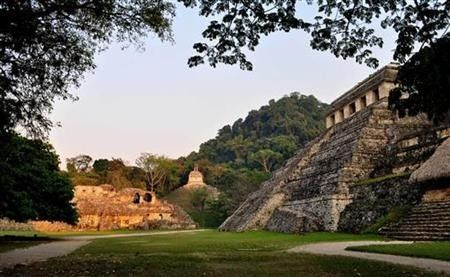Doomsday Dashed: Why the End of the World Will Not Happen on Dec. 21, 2012

Dec. 21, 2012, marks the supposed end of the Maya calendar, which began sometime around August 11, 3114 B.C. Many believe that the end of the calendar, which happens to fall on the same day as the Winter Solstice, marks the end of the world. Doomsday prophets are banking on the end of humankind.
However, a new hypothesis has begun to float around the Internet that poses a contradicting opinion. This new theory might very well silence all those doomsayers once and for all. It has appeared on Tumblrs and forum threads as well as on Twitter and Facebook pages.
The notion states: There have been about 514 Leap Years since Caesar created it in 45BC. Without the extra day every 4 years, today would be July 28, 2013. Also, the Mayan calendar did not account for leap year...so technically the world should have ended 7 months ago.
It is unclear where exactly this thought originated, but it surely does pose a solid argument against all those end-of-days predictions.
Other arguments, along with this newest one, have been used to decry 2012 doomsday theories.
The National Geographic laid out a six-point argument disproving multiple end-of-the-world myths, one of which included that the Maya purportedly predicted the end of the world for 2012.
According to National Geographic, the Maya calendar does not actually end in 2012 and archaeologists contend that the Maya never viewed that year as the end of the world. Though the Maya viewed time as linear, with an understanding of past-present-future, they also saw time as cyclical. The calendar was a cyclical entity that would circle around again once one cycle was completed.
Dec. 21, 2012, is a momentous day. It's the time when the largest grand cycle in the Mayan calendar-1,872,000 days or 5,125.37 years-overturns and a new cycle begins, said Anthony Aveni, a Maya expert and archaeoastronomer at Colgate University in Hamilton, N.Y.
On that date, the Maya Long Count calendar runs out. The Long Count calendar began one Aug., 11, 3114 B.C. which was the dawn of the last creation period, according to National Geographic. On Dec. 22, 2012, the calendar will roll over again and start at Day Zero. The idea is that time gets renewed, that the world gets renewed all over again-often after a period of stress-the same way we renew time on New Year's Day or even on Monday morning, said Aveni, author of The End of Time: The Maya Mystery of 2012.
The Maya were known for their exceptionally advanced civilization and their developed understanding of astronomy and mathematics. But doomsayers they were not. Unless Snooki's baby turns out to be the anti-Christ, it seems as if we will all live to see 2013.
© Copyright IBTimes 2024. All rights reserved.





















